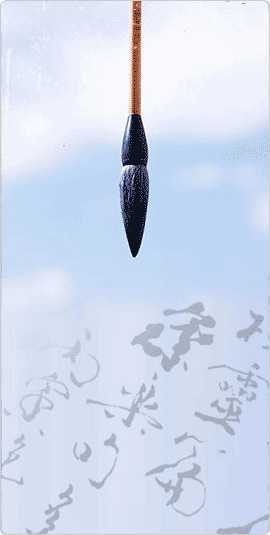Newsletter


Tángcháo Lĭ Shìmín dă xiàle jiāngshān, măn cháo wénwǔ dōu lì xià le hànmă gōngláo.
唐 朝 李 世 民 打 下了 江 山, 满 朝 文 武 都 立下 了 汗 马 功 劳。![]()
In the Tang dynasty, Li Shimin established his kingdom, with each of the court officials making great contributions.
Chéng Yăojīn hé Yùchí Gōng wèi zhēng gōngláo shuí yĕ bù lĭ shuí.
程 咬 金 和 尉迟 恭 为 争 功 劳 谁 也 不理 谁。![]()
But, Chen Yaojin and Yu Chigong refused to speak to each other because of a dispute over who contributed what.
Lĭ Shìmín fāchóu dàchén bùhé, hòulái Wèi Zhēng chūle yígè zhǔyi.
李 世 民 发 愁 大 臣 不合,后 来 魏 征 出了一个 主意。![]()
Li Shimin was worried about the dispute between them. Later, Wei Zheng came up with a good idea.
Wèi Zhēng shuō: "Wànsuì, míngtiān shì dànián sānshí, hòutiān shì chūyī. Míngtiān
魏 征 说: “万 岁, 明 天 是 大年 三 十,后 天 是 初一。明 天
chūyī zăocháo nĭ gĕi măn cháo wénwǔ kētóu zuòyī, jiù shuō zhè shì bàinián.
初一 早 朝 你 给 满 朝 文 武 磕头 做 揖,就 说 这 是 拜 年。
Nĭ zài ràng dàjiā nà tiān hùxiāng bàinián. Bàinián yào shuō jíqìng huà, xīnnián
你 再 让 大家 那 天 互 相 拜 年。 拜 年 要 说 吉庆 话,新 年
kuàilè dĕng. Zhèyàng néng bă zhège shì jiĕjué."
快 乐 等。 这 样 能 把 这 个 事 解决”。 ![]()
Wei Zheng said: "Emperor, tomorrow is New Year's Eve, and the day after tomorrow is Lunar New Year's day. During court tomorrow morning, you should kowtow and bow to all the court officials, telling them this is called "to pay a New Year's visit." Then you can require them to pay New Year's visits to each other with kind words such as "Happy New Year." Thus, we can solve the dispute between Chen Yaojin and Yu Chigong.
Dì èr tiān zăocháo, Lĭ Shìmín gĕi dàchén bài le zăonián, bìng yāoqiú dàchén hùxiāng
第 二 天 早 朝, 李 世 民 给 大 臣 拜 了 早 年, 并 要 求 大 臣 互 相
bàinián.
拜 年。 ![]()
The next morning, Li Shimin paid a New Year's visit to all the court officials, and he also required them to visit each other.
Dì èr tiān shì dànián chū yī, Chéng Yăojīn hé Yùchí Gōng hùxiāng bàinián,
第 二 天 是 大 年 初 一,程 咬 金 和 尉迟 恭 互 相 拜年,
tā liăng hé hăo le.
他 俩 和 好 了。 ![]()
The second day was lunar New Year's Day. Chen Yaojin and Yu Chigong paid a New Year's visit to each other, and the two reconciled.
Zhè jiàn shì chuán dào xiāngxia, cūn lĭ rén tōngguò bàinián, bă chóu dōu jiĕ kāi le.
这 件 事 传 到 乡 下,村 里人 通 过 拜 年, 把 仇 都 解 开 了。
Zhè ge fēngsú jiù liúchuán xià lái le.
这 个 风 俗 就 流 传 下 来了。 ![]()
When villagers heard of this, they also resolved their conflicts by paying New Year's visits, so the custom of paying a New Year's visit has remained ever since.
拜年 (bàinián): v. to pay a New Year's visit 
今 天, 我 们 全 家 去 给 姑姑 拜年。
Today, our whole family will pay a New Year's visit to my aunt.
"万 (wàn)" means "ten thousand", "岁 (suì)" means "age", so the literal meaning of "万岁 (wàn suì)" is "Live for 10 thousand years." In ancient China, people used "万岁 (wànsuì) to address their emperor in order to show respect. But, we seldom use "万岁" nowadays.
万 岁,今 年 粮 食 大 丰 收 了。
My dear emperor, we have had a good harvest this year.



